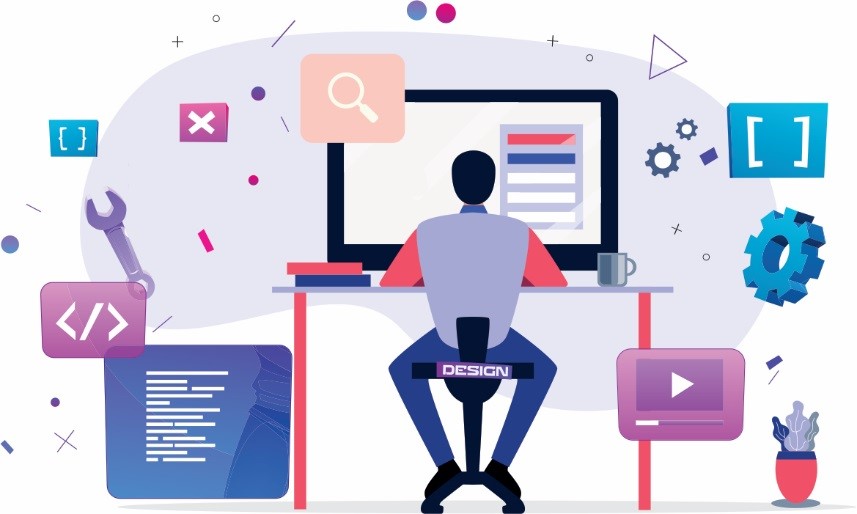Why Picking the Right Software Development Partner Can Transform Your Project
Why Picking the Right Software Development Partner Can Transform Your Project
Blog Article
Committed Developers vs. In-House Teams: Which Is Right for You?
The choice in between utilizing devoted developers and maintaining an internal team is a significant one that can impact the trajectory of your projects and overall organization approach. Committed programmers give a degree of versatility and specific experience that can be useful for particular, temporary initiatives. Conversely, in-house teams add to a natural firm culture and a nuanced understanding of lasting goals. By examining crucial variables such as budget plan, task range, and preferred control, you can much better identify which approach aligns with your organizational requirements. The effects of this choice prolong beyond instant results-- take into consideration the wider effect on your company landscape.
Comprehending Devoted Programmers
The expanding need for specialized skills in the tech sector has actually led to the introduction of dedicated programmers as a viable service for numerous organizations. These professionals are normally acquired on a project basis, enabling firms to utilize particular competence without the long-lasting dedication linked with full time hires. Committed designers are usually ingrained within a client's group, supplying versatility and scalability to fulfill task requirements.
This version permits organizations to access a global talent swimming pool, which is specifically advantageous in a quickly evolving technological landscape. Committed developers can be sourced from different geographical locations, making sure that firms can find the best capability at affordable prices. They typically bring a wealth of experience and knowledge, having serviced varied projects throughout different industries.
In addition, dedicated programmers can focus exclusively on the tasks at hand, improving performance and performance. They are equipped to incorporate perfectly right into existing process, working together closely with internal teams to accomplish job purposes. This technique not just decreases the burden of employment and training however additionally enables organizations to continue to be nimble, adapting quickly to transforming market demands and technical developments.
Benefits of In-House Teams

Moreover, internal teams often tend to have a much deeper understanding of the company's goal, values, and objectives. This positioning can enhance worker engagement and motivation, as staff member really feel more connected to their work and the company's success. Furthermore, having a devoted internal team permits better alignment of purposes and methods, as these participants are consistently concentrated on the company's top priorities.
In-house groups additionally help with quicker decision-making procedures, as they can react a lot more rapidly to challenges and changes. The recognized connections and familiarity with firm methods permit streamlined process and lowered miscommunication. Inevitably, the mix of a cohesive society, alignment with organizational objectives, and efficient communication makes internal groups a beneficial asset for several companies, particularly those seeking to cultivate lasting growth and technology.
Cost Considerations
When evaluating cost considerations, both devoted programmers and internal groups existing distinctive economic implications for companies. Engaging committed designers typically includes a pay-per-project or per hour price model, which can be economical for organizations with changing job demands. This method enables for flexibility in scaling resources up or down, making certain that firms only spend for the solutions they need.
In comparison, in-house teams entail dealt with expenses, consisting of salaries, advantages, and overhead expenses such as Continued office and equipment. While this model provides higher control and instant schedule of sources, it might cause greater long-lasting costs, particularly if the work does not warrant a full time team.
In addition, business must think about the surprise expenses connected with recruitment and training of in-house employees, which can further stress spending plans. In many cases, the time and resources spent on handling an internal team can diminish the company's core service purposes.

Project Administration and Flexibility
Task management and adaptability are crucial factors that influence the option in between specialized programmers and in-house groups. Devoted programmers normally provide a high degree of flexibility, allowing organizations to scale resources up or down based on task demands. This agility can be particularly beneficial for organizations experiencing rising and fall workloads or those seeking to introduce quickly. Devoted groups typically have actually developed processes for managing projects effectively, leveraging details techniques like Agile or Scrum, which assist in iterative progress and flexibility.

Ultimately, the choice between committed developers and in-house teams depends upon the wanted degree of flexibility and the details task management requirements. Firms have to review their operational characteristics, project complexity, and resource schedule to determine which alternative aligns ideal with their tactical goals.
Making the Right Selection
Choosing the ideal advancement technique-- devoted programmers or internal teams-- requires a cautious evaluation of numerous factors that align with a business's strategic objectives. On the other hand, in-house teams can give far better continuity and assimilation with existing workers.
Following, evaluate your budget. Devoted developers usually provide an economical solution for temporary projects, while in-house groups might sustain higher long-lasting costs as a result discover this of incomes, benefits, and expenses costs. Examine the level of control and collaboration wanted; in-house teams typically promote more powerful interaction and placement with firm culture.
If immediate results are required, dedicated programmers can be onboarded rapidly, whereas developing an internal team takes time for employment and training. If constant growth is vital, spending in an internal group may produce better returns over time.
Verdict
In final thought, the decision between in-house teams and committed developers hinges on job needs and business objectives. On the other hand, in-house teams grow a cohesive society and much deeper positioning with lasting goals.
The choice in between making use of committed designers and keeping an internal group is a substantial one that can affect the trajectory of your jobs and general business method.Job administration and adaptability are vital variables that influence the choice in between internal groups and specialized developers. software development staff augmentation.In comparison, internal teams might succeed in preserving a regular job administration structure due to their familiarity with the company's culture and lasting objectives. Devoted designers often offer an economical solution for temporary projects, while in-house groups may sustain higher long-lasting expenses due to incomes, benefits, and expenses expenses.In final thought, the choice in between in-house teams and specialized developers pivots on project requirements and business goals
Report this page